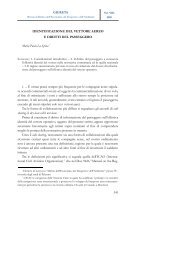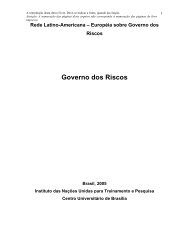Rome II and Tort Conflicts: A Missed Opportunity Abstract Contents
Rome II and Tort Conflicts: A Missed Opportunity Abstract Contents
Rome II and Tort Conflicts: A Missed Opportunity Abstract Contents
Create successful ePaper yourself
Turn your PDF publications into a flip-book with our unique Google optimized e-Paper software.
SYMEON C. SYMEONIDES ROME <strong>II</strong> AND TORT CONFLICTS<br />
97<br />
Article 7 would allow the victim to opt for Swiss law. The drafters decided not to<br />
extend this option (which the Report characterizes as “the principle of favouring the<br />
98 victim”) to other torts , because “this solution would go beyond the victim’s<br />
99<br />
legitimate expectations.”<br />
This, however, is the wrong dilemma. The dilemma is not whether one should<br />
favor victims over defendants, but rather whether—in a subject called “conflict of<br />
laws”—one should seek to first determine whether the involved laws actually conflict.<br />
As in the case of environmental torts, the reason for giving victims a choice is not to<br />
benefit victims as such, but rather out of deference to the policies of the state of<br />
conduct, which is the only state that has something to lose from the non-application<br />
of its law. In this case, Switzerl<strong>and</strong>’s negligence per se rule is intended to deter people<br />
from engaging in inherently dangerous operations like blasting. Because the defendant<br />
acted within Swiss territory, Switzerl<strong>and</strong> has every reason to insist in determining the<br />
legal consequences of that activity, even if in this case, the injury occurred across the<br />
border. The effectiveness of this policy of deterrence would be seriously impaired if<br />
exceptions to it were made for out-of-state injuries. Moreover, in terms of fairness <strong>and</strong><br />
party expectations, there is nothing unfair in subjecting a tortfeasor to the law of the<br />
state in which he acted. Having violated the st<strong>and</strong>ards of that state, the tortfeasor<br />
should bear the consequences of such violation <strong>and</strong> not be allowed to invoke the lower<br />
st<strong>and</strong>ards of another state. Conversely, there is little reason to apply French law. Its<br />
ordinary negligence rule was intended to protect mining defendants who operate<br />
100<br />
within French territory, not foreign operators operating elsewhere. In conclusion,<br />
there is a good deal of wisdom in the rules that allow the victim or the court to choose<br />
between the laws of the state of conduct <strong>and</strong> the laws of the state of injury in cases of<br />
101<br />
cross-border torts. It is regrettable that the drafters of <strong>Rome</strong> <strong>II</strong> have chosen not to<br />
adopt a similar rule as they did with regard to environmental torts. 102<br />
A. The List<br />
97. Art. 7 is discussed infra V<strong>II</strong>.<br />
98. Report, art. 3, 11.<br />
99. Id. at 11-12.<br />
V. THE EXCEPTIONS<br />
As noted earlier, one cannot properly evaluate <strong>Rome</strong> <strong>II</strong> without also analyzing<br />
the exceptions to its basic rule of lex loci damni. A careful perusal of the whole<br />
100. Similar arguments could be made if France, but not Switzerl<strong>and</strong>, limited the amount of damages<br />
that could be recovered from mining operators. Again, art. 4(1) would m<strong>and</strong>ate the application<br />
of French law, albeit subject to the “closer-connection” escape of art. 4(3). However, for<br />
reasons explained later, this escape will not necessarily lead to Swiss law.<br />
101. See, e.g., EGBGB arts. 40.1, 41; SWISS PIL ACT Arts. 133(2), 136-39; ITALIAN PIL ACT art. 62;<br />
VENEZUELAN PIL ACT art. 32(2); HUNGARIAN PIL ACT art. 32(2).<br />
102. For contrary views, see Hay, supra note 7, at I-145; Wagner, supra note 7, at 379.<br />
56 AMERICAN JOURNAL OF COMPARATIVE LAW (2008) PAGE 20 OF 46



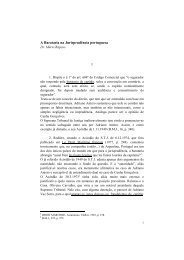

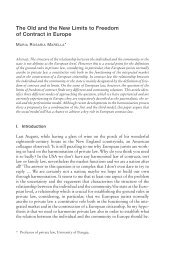

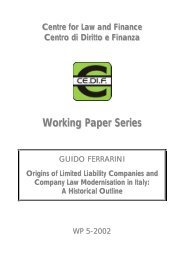
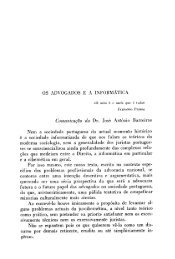
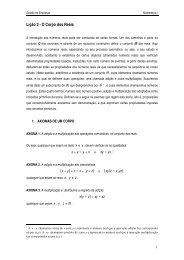
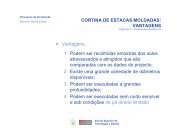
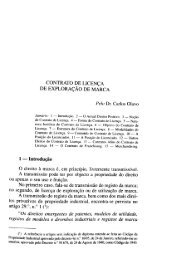
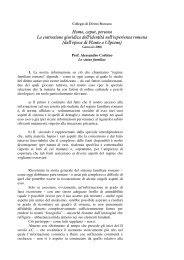
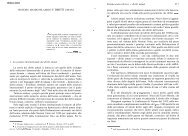

![Luigi Sapio Nozione di islām La parola “islām” [ ] è il mas.dar1 ...](https://img.yumpu.com/15836073/1/185x260/luigi-sapio-nozione-di-islam-la-parola-islam-e-il-masdar1-.jpg?quality=85)
